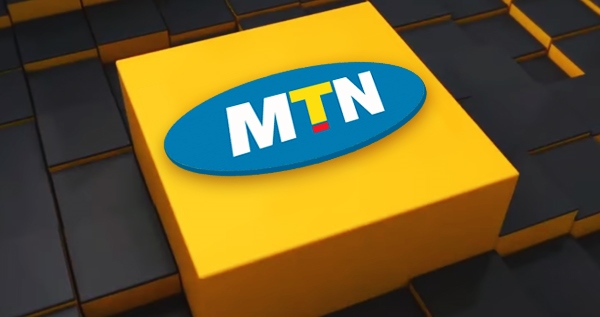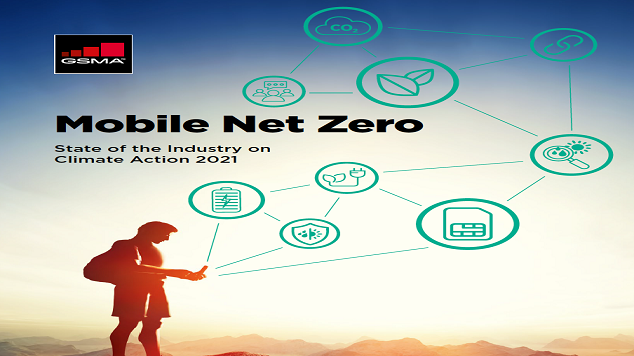Telecom
MTN Nigeria’s Mobile Subscribers Decline by 5 Million to 71.5 Million in Q1 2021

MTN Nigeria Communications Plc has announced its unaudited results for the quarter ended 31 March 2021.

The telecom company in a released unaudited result, reveals that its mobile subscribers declined by 5 million to 71.5 million due to the effects of customer churn and the regulatory restrictions on new SIM sales and activations.
The telelecom company’s active data users also declined marginally by 71,000 to 32.5 million.
However, its service revenue increased by 17.2 per cent to N385.2 billion, while
Earnings Before Interest, Tax, Depreciation, and Amortisation (EBITDA) grew by 19.1 per cent to N204.5 billion.
EBITDA margin increased by 0.9 percentage points to 53.1 per cent. Capital expenditure was up by 19.3 per cent to N89.9 billion, up 27.8 per cent to N31.6 billion excluding right of use (RoU) assets.
The result showed that profit before tax grew by 33.9 per cebt to N102.9 billion, while earnings per share rose by 42.5 per cent to N3.60 kobo.
According to the report, “Operationally, service revenue in Q1 grew by 17.2 per cent year on year (YoY), in line with our medium-term target, supported by growth of 42.6per cent and 8.0 per cent in data and voice revenue respectively.
“This was achieved despite the impact of the pandemic and a decline in our subscriber base due to the effects of customer churn and the restrictions on new SIM sales and activations arising from changes in SIM registration regulations. We continue to collaborate with the Nigerian Communications Commission (NCC) and the Nigerian Identity Management Commission (NIMC) to update subscriber records with the National Identity Number (NIN).”
Commenting on the report, MTN Nigeria CEO, Karl Toriola, said: “We made good progress in the first quarter of 2021 despite the continued impact of the COVID-19 pandemic. We continue to prioritise the safeguards put in place to protect the health and well-being of our people, customers and stakeholders and to control the spread of the virus while ensuring network resilience and efficiency.
“As part of our Y’ello Hope initiatives, we continue to support Government’s efforts in combatting the COVID-19 pandemic. We supported the most vulnerable in our communities, providing them with free-to-access services (including SMS and data) as well as essential medical supplies (tests and personal protective equipment).
“We continue to support the Coalition Against COVID-19 (CACOVID) that has driven multiple initiatives, such as building isolation centres across the country. MTN Nigeria also paid taxes early in support of Government’s ongoing efforts. In addition, our REVV support programme for Micro, Small and Medium Enterprises (MSME) helps them navigate the new digital reality.”
Toriola said MTN Nigeria would continue to actively support the federal government’s NIN enrolment programme, with 182 points of enrolment active across the country, noting, “We are working with NIMC to increase the enrolment centres to provide an access point for as many Nigerian as possible.”
The report further stated that digital revenue grew by 101.0 per cent and fintech revenue by 28.5 per cent as customers continued to adopt more digital products and services, a trend accelerated by the pandemic.
“As at the end of March 2021, we had 449,100 registered MoMo agents and 4.6 million fintech customers.
Our ability to drive service revenue growth while managing the growth in expenses resulted in an acceleration in EBITDA growth to 19.1% and EBITDA margin expansion of 0.9pp to 53.1% YoY. This enabled profit before tax (PBT) and profit after tax (PAT) growth of 33.9% and 42.5% respectively,” the report said.
The report further explained that enterprise business continued its recovery from the impacts of the COVID-19 lockdown as economic activity improved.
It said expenses rose by 14.8 per cent, mainly driven by a 19.2 per cent increase in operating expenses arising from an accelerated site rollout and the effects of Naira depreciation on lease rental costs.
“The overall increase in expenses was partly mitigated by the comparatively moderate growth of 7.8 per cent in cost of sales following the suspension of new SIM sales and activations. As a result, EBITDA rose by 19.1 per cent, supported by revenue growth, with the EBITDA margin expanding by 0.9pp to 53.1 per cent,” the report stated.
Giving insights of general business outlook, Toriola said:” Our 2021 priorities remain unchanged, with a clear focus on sustaining double-digit revenue growth, driving 4G network expansion and positioning our fintech business for accelerated growth in order to unlock its full value. The acquisition of additional 800MHz spectrum, positions us to deliver improved service speeds to Nigerians in support of the government’s broadband initiative.”
He said MTN would continue to sustain its expense efficiency programme to strengthen its financial position and support margins.
“We will pursue stronger and deeper stakeholder relationship and enhanced shared value across our stakeholder ecosystem while ensuring that our activities align with the Government’s development agenda. Environmental, social and governance (ESG) principles remain at the core of everything we do, with a focus on aligning our priorities to drive eco-responsibility, sustainable society, sound governance and economic value for all in Nigeria,” Toriola added.
Telecom
Tarana, Microsoft Enhance Africa’s Broadband Connectivity

Tarana, provider of next-generation fixed wireless access (ngFWA) broadband technology, is collaborating with Microsoft to expand internet access in rural and underserved communities across Africa.

Together, the companies will help service providers in rural and underserved Africa deploy government-approved telecom equipment, along with training and technical support.
This comes as access to secure; affordable telecom equipment remains a major barrier to internet connectivity in Africa. Despite progress, high infrastructure costs and limited rural coverage have allowed the digital divide to persist.
Tarana stated that in some areas, fewer than 30% of people have dependable internet connectivity.
To that end, it said its collaboration with Microsoft will help reduce the cost of ngFWA equipment for African internet service providers while also assisting with deployment logistics, enabling them to give internet access more faster and more cost-effectively.
The company went on to say overcoming two primary limitations of traditional fixed wireless access) technology, ngFWA delivers high-speed broadband service in both non-line-of-sight conditions and heavy radio interference, making it an ideal solution for hard-to-reach and underserved markets.
More than 250 operators worldwide are deploying ngFWA to deliver better broadband more efficiently, said the company.
Basil Alwan, CEO of Tarana, added: “We look forward to making significant progress on the digital divide together.”
“Access to affordable, secure broadband infrastructure is essential for unlocking economic opportunity through digital access across Africa,” said Vickie Robinson, general manager, energy, connectivity, and sustainability at Microsoft. “By working with Tarana, we’re helping local operators overcome cost and deployment barriers so they can bring high-speed connectivity to the communities that need it most.”
Telecom
Mobile Industry Emissions Down 8%, But Pace Must Double to Hit Net Zero

The mobile industry’s operational emissions fell by 8% between 2019 and 2023, even as mobile connections grew by 9% and data traffic quadrupled, according to the GSMA’s fifth annual Mobile Net Zero report released this week.

The findings show the mobile industry has successfully started to decouple emissions from data and connectivity growth – a stark contrast to global emissions, which have increased 4% since 2019. However, to continue progress and reach net zero by 2050, emissions must fall by 7.5% annually until 2030 – more than twice the average annual rate achieved to date.
Key findings from the report include:
- Preliminary 2024 data suggests a further 4.5% drop in emissions – an acceleration on previous years, but still short of the 7.5% annual reduction needed to 2030.
- 37% of electricity used by operators disclosing to CDP came from renewables in 2023, up from 13% in 2019 – avoiding 16 million tonnes of emissions.
- 81 mobile operators (covering nearly half of global connections) have set or committed to science-based targets.
- The GSMA Climate Action Taskforce now includes 77 operators, covering 80% of mobile connections worldwide.
- Europe (-56%), North America (-44%), and Latin America (-36%) lead the way in operational emissions reductions between 2019 and 2023.
- New analysis of China shows operational emissions likely fell by 4% in 2024 – the first decline after a 7% rise between 2019–2023 – alongside a more than quadrupling of renewable energy use.
Global, collaborative climate action gathers pace
The acceleration in decarbonisation is driven by operator actions to improve network energy efficiency and transition to clean energy, including solar and battery storage. Many operators are phasing out less efficient legacy networks and reducing their reliance on diesel generators.
Some markets are seeing better renewable electricity access through policy support and market reform, but the GSMA warns that the accelerated reductions needed by 2030 will require greater access across more markets.
Regional momentum is building globally, with Europe and the Americas leading emissions reductions, while Asia and Africa show increasing engagement. China, representing the world’s largest mobile market with more than one billion 5G connections, shows promising progress in 2024.
New analysis published today to frame discussions at MWC25 Shanghai indicates China’s operational emissions declined for the first time in 2024, with preliminary data showing a 4% reduction year-on-year driven by a more than quadrupling in renewable energy use by operators. As the industry’s largest single market, China’s progress is instrumental in achieving global net zero targets.
Steven Moore, Head of Climate Action at the GSMA comments: “Our findings show the mobile industry isn’t greenwashing or greenwishing – it’s green acting. Emissions are trending in the right direction, but the pace of progress must now double.
“This is a global effort, and it’s encouraging to see momentum building across every region – from Latin America to Europe and especially to China.
“But to sustain this progress, we need broader support: better access to renewables, more policy certainty, and stronger collaboration across the ecosystem. Supply chain emissions, which make up most of our industry’s footprint, must also be addressed – and climate transition plans will play an increasingly important role in navigating what comes next.”
Focus on Scope 3 and circularity sharpens
The report emphasises that Scope 3 emissions – mostly from supply chains and manufacturing – account for more than two-thirds of the industry’s total carbon footprint and require attention. While transparency is improving, Scope 3 emissions remain a blind spot compared with operational emissions (Scopes 1 and 2), making them a critical challenge for operators with science-based targets, which require reductions across full value chain emissions.
Additionally, the report points to growing momentum around circular economy initiatives. Consumer appetite for sustainable devices is rising, with around 90% of users surveyed by GSMA saying they value longevity and repairability, and nearly half considering refurbished for their next phone purchase.
Buying refurbished instead of new can save consumers money and reduce environmental impacts from manufacturing, with refurbished phones generating 80-90% fewer emissions than new ones. While new device sales have slowed in recent years, the second-hand device market is growing rapidly, and projected to be worth $150 billion by 2027.
Many leading operators are now developing climate transition plans to assess climate risks and map out credible, long-term strategies toward net zero. These plans are expected to become a key focus of the GSMA’s Climate Action Programme over the coming year.
Telecom
MTN’s Ikenna Ikeme Urges Responsible AI Use @Pan African Data Policy Conference

The use of local content in Artificial Intelligence systems is essential for delivering accurate, region-specific results, according to MTN Nigeria’s General Manager for Regulatory Affairs, Ikenna Ikeme.

He shared this perspective at the recently held Network of African Data Protection Authorities (NADPA) Conference, held in Abuja recently.
The conference convened industry leaders, policymakers, and experts to discuss the role of data and AI in shaping Africa’s future. Key discussions focused on balancing innovation with risk, safeguarding data in AI systems, promoting responsible data use, and enabling cross-border data flows.
During a panel on “Data Governance for Responsible and Beneficial Use of AI,” Ikeme highlighted data’s dual nature. “Data can be transformational by bringing efficiency to businesses, but it also presents risks, ranging from privacy to investment,” he stated. He warned against relying too much on external data.
Adewale Adene, Google’s Government Affairs and Public Policy Manager, also spoke at the session. Adene projected AI and data governance could add $30 trillion to Africa’s economy by 2030. “All relevant authorities and stakeholders must ensure Africa is positioned to capitalise on this new economy,” he urged.
Other panelists included Nonye Ujam, Government Affairs Lead at Microsoft; Ololade Shyllon, Director of Privacy Policy for Africa, the Middle East, and Turkey at Meta; Oliver Patel, Head of Enterprise AI Governance at AstraZeneca (who joined remotely); Femi Daniel, Senior Counsel, Privacy and Data Protection at Mastercard; and Adewolu Adene, Government Affairs and Public Policy Manager at Google.
The conference stressed the urgent need for African stakeholders to create strategic policies. These policies should support both growth and safety.
Participants called for collaboration, investment in local data infrastructure, and strong legal frameworks. This is to ensure AI technologies are developed and used responsibly.
The NADPA Conference served as a timely call to action. It urged governments, companies, and regulators to prioritise trust and transparency. Homegrown solutions are key in shaping Africa’s digital destiny, the conference concluded.

 Telecom3 days ago
Telecom3 days agoALTON Clarifies on Migration to End-User Billing for USSD Services

 E-Financial3 days ago
E-Financial3 days agoNigerian Stock Market Suffers ₦183 Billion Loss Amid Profit-Taking

 News3 days ago
News3 days agoDStv Rewards Loyal Customers with Free Package Upgrades

 Telecom3 days ago
Telecom3 days agoLagos Future Conference 2025: Stakeholders Call for Digital Responsibility and Grassroots Innovation

 General News3 days ago
General News3 days agoAfrican Parliamentarians Seek Answers from Telcos on Quality of Service

 News2 days ago
News2 days agoLasaco Assurance to Invest in Technologies, Systems to Deliver Value to Clients

 E-Financial3 days ago
E-Financial3 days agoSEC Working on Stablecoin Regulation Framework

 News3 days ago
News3 days agoFCCPC Orders Air Peace to Appear Over Alleged Refund Violations




























